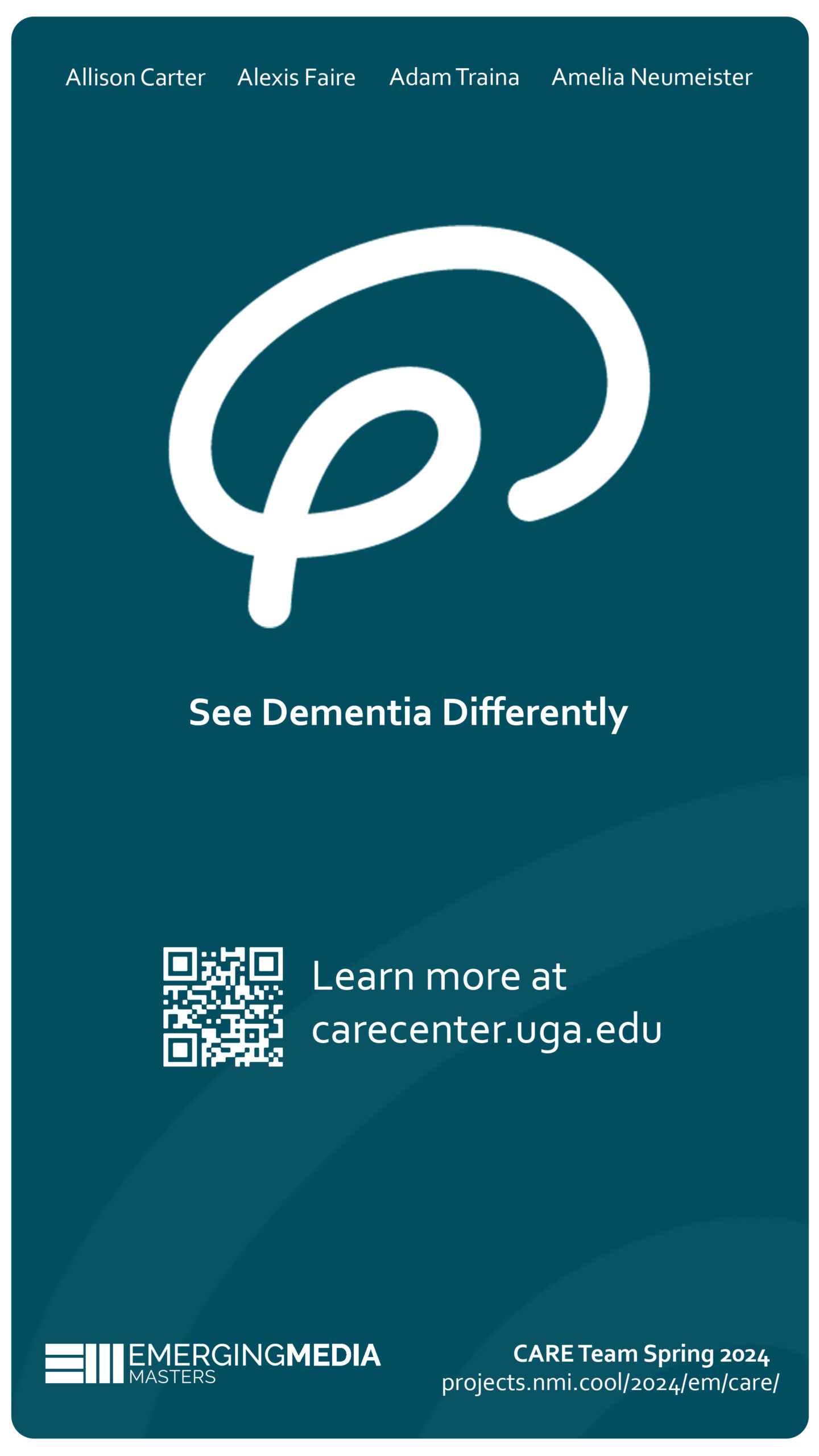CARE
Within the rural and small communities of the state of Georgia, there are only 100 practicing geriatricians which means information about dementia and brain health can often be misunderstood or difficult to find. On top of this factor, the number of Alzheimer’s disease and related dementias (ADRD) cases is increasing. As this number increases, the need for access to education, diagnosis, and support grows.
The Cognitive Aging Research and Education (CARE) Center at the University of Georgia exists to ensure that everyone in the state, including rural Georgians, has access to Alzheimer’s Disease and related dementia education, diagnosis, and support. As of right now, the CARE Center’s reach is 11 rural counties, but CARE knows how important it is to have a digital footprint that brings resources to the remaining 107 rural counties in Georgia. To address this need, the CARE Center in collaboration with the New Media Institute is taking steps to create a digital footprint that includes a custom made website, an original Brain Health Video series and a social media strategy.
With these digital tools conveniently accessible to anyone with internet access, the CARE Center will expand their reach throughout the state. Acting as an all-in-one platform for information on brain health and ADRD, the website will have an intuitive, welcoming design that guides users through the website’s landing page to the different areas of CARE’s expertise and services. In that same vein, the original educational video series’ tone reiterates the welcoming, relatable design of the website. Drawing directly from CARE’s official research, the videos’ language and style positions the CARE Center as a voice of knowledge in the often confusing world of health. The final component consists of a strategy to help expand CARE’s social media presence – through platforms like TikTok, Instagram, and YouTube – to rural Georgians and to further promote ADRD education.
With these new media avenues for outreach available, the CARE Center will serve as a beacon of support and knowledge for rural Georgians entering a new phase of life.

